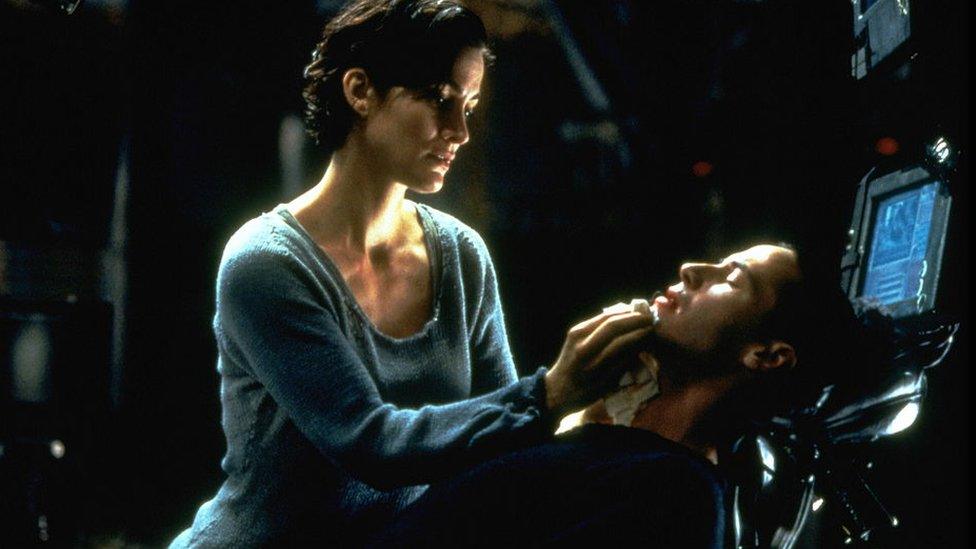The Matrix's real-world legacy - from red pill incels to conspiracies and deepfakes
- Published
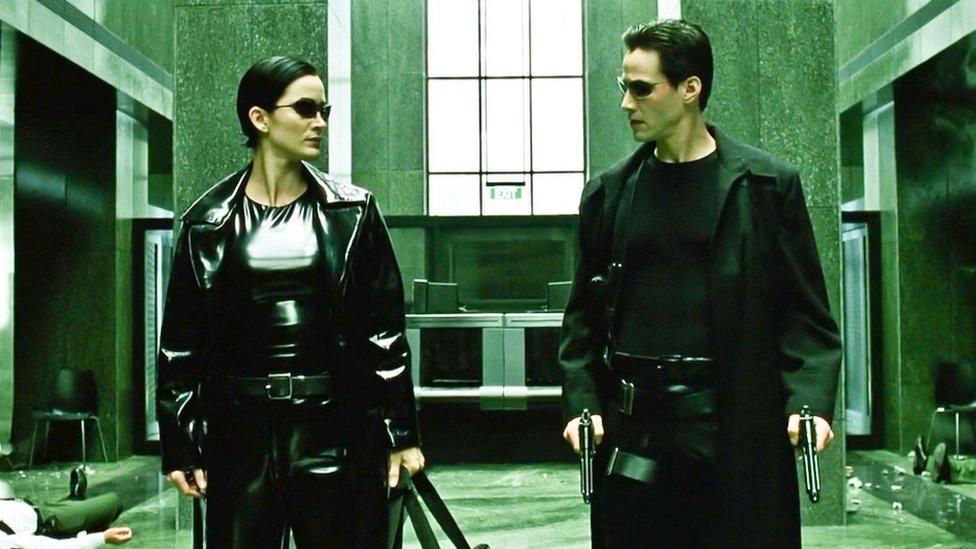
Carrie-Anne Moss and Keanu Reeves star as Trinity and Neo in The Matrix films
"I don't know the future... I didn't come here to tell you how this is going to end, I came here to tell you how it's going to begin."
The closing monologue of 1999's The Matrix saw Keanu Reeves' heroic character Neo deliver a stark warning to the world's controlling machines, having discovered that humanity was trapped in a simulated reality.
Released as society lay on the cusp of the internet revolution and fretted over the millennium bug, the film not only tapped into technological developments of the time, but posed far-flung questions about the internet, consciousness and social control that have since come to shape society.
As a fourth instalment, Matrix Resurrections, hits cinemas - 18 years on from the original trilogy drawing to a close - we look at the saga's enduring and often prophetic legacy.
'Desert of the real'
The Matrix's co-creator siblings Lana and Lilly Wachowski loosely based their dystopian vision on the work of French academic philosopher Jean Baudrillard.
Long before Reeves donned Neo's trench coat and shades, they asked that he read Baudrillard's 1981 book Simulacra and Simulation to prepare for the role.
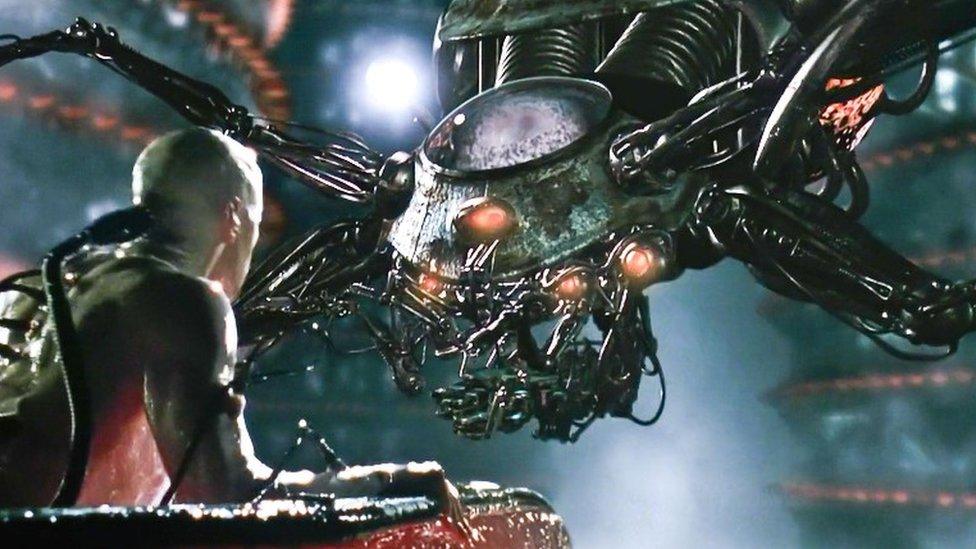
The machines covertly placate humanity in the matrix simulation so they can enslave them as a power source in the ruins of the real world
It pondered a "desert of the real" - a world where true reality had been replaced by the illusions of capitalism.
The film took the concept, with rebel leader Morpheus using the exact phrase when introducing Neo to the ruins of the outside world, and rewired it.
Where for Baudrillard there was no escape from the simulation, the Wachowskis offered hope in the "promise of a true natural world 'unplugged' and separate from the Matrix", explains Prof Richard Smith, editor of The Baudrillard Dictionary.
Baudrillard was not a fan of the change. "The Matrix is surely the kind of film about the matrix that the matrix would have been able to produce," he said.
Either way, the rabbit hole had been opened. Here are four main ways it has hacked our reality.

1. Red-pilling
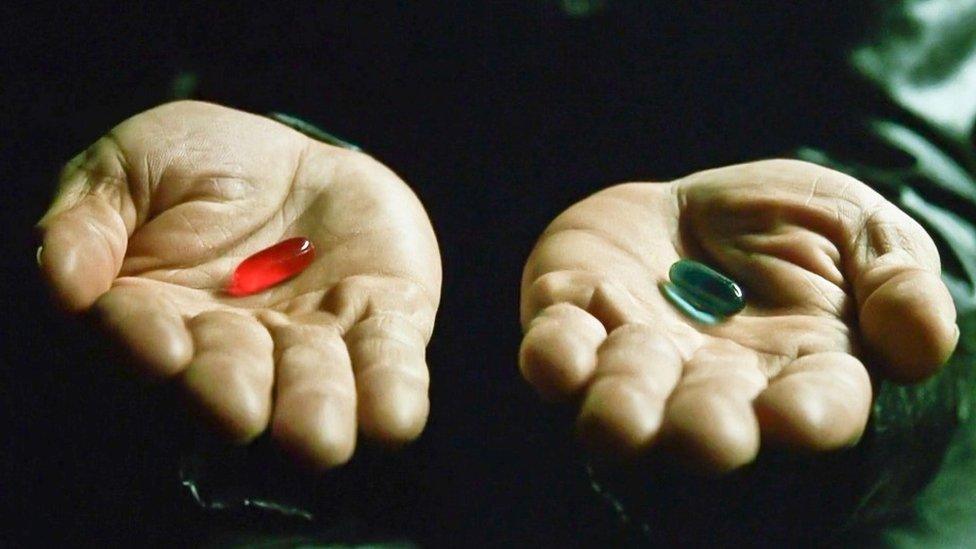
The concept of a red pill of truth or blue pill of denial has been reappropriated in culture since the film's release
One of the most iconic scenes in The Matrix sees Morpheus offer Neo (then still living as curious hacker Thomas Anderson) a central choice of blue pill or red pill.
Pop the blue pill and return to life as Mr Anderson blissfully unaware of the matrix, the simulated world created to covertly enslave humanity. Or swallow the red pill and become enlightened to reality and the tyranny of the machines.
For Prof Smith, the film's Marxist narrative evokes Plato's allegory of chained prisoners in a cave "who mistake the shadows on the wall for reality".
As Morpheus puts it: "The Matrix is the world that has been pulled over your eyes to blind you from the truth." The pill scene "urges human beings to free themselves from the world of appearances", says Prof Smith.
But over time the film's cultural prominence has seen the red pill metaphor rebranded online for causes far removed from its original meaning.
This includes its adoption by misogynistic online groups, notably the incel movement - young men describing themselves as "involuntarily celibate" - part of a "manosphere" closely tied to a hatred of women.
Allow YouTube content?
This article contains content provided by Google YouTube. We ask for your permission before anything is loaded, as they may be using cookies and other technologies. You may want to read Google’s cookie policy, external and privacy policy, external before accepting. To view this content choose ‘accept and continue’.

Reddit forum TheRedPill (TRP) was launched in 2012 with the aim of providing men with a "sexual strategy" to defeat what it described as a manipulative "feminist culture" that solely empowers women.
By the time it was "quarantined" by Reddit in 2018 (given a content warning and only made accessible via direct links), in a community clean-up drive that eventually saw incel forum r/braincels shut completely, it had more than 400,000 followers.
Research on the measure from the Australian National University suggested that rather than limit hate speech, it had simply pushed many users off-site on to self-moderated platforms., external
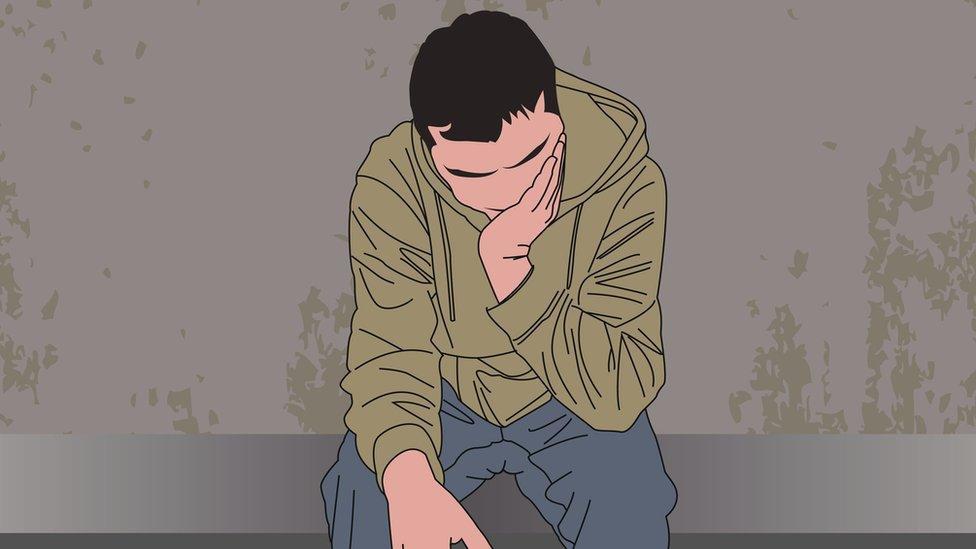
In some cases the philosophy has moved offline with deadly consequences. Plymouth gunman Jake Davison spoke of "consuming the black pill overdose" in YouTube videos before his August killing spree - the incel community's own term for nihilistic red pill extremism.
Journalist, author and social media creator Sophia Smith Galer says the offline transition reflects how at its most basic, red pill theory appeals as a readily accessible answer and misguided outlet for life's frustrations.
"The epicentre of their problems often becomes women, rather than real, systemic failings or stereotypes in society that hurt all of us - and then many share misogynist, violent or self-harming ideas about how to improve their lives," she told the BBC.
2. 'Free your mind'
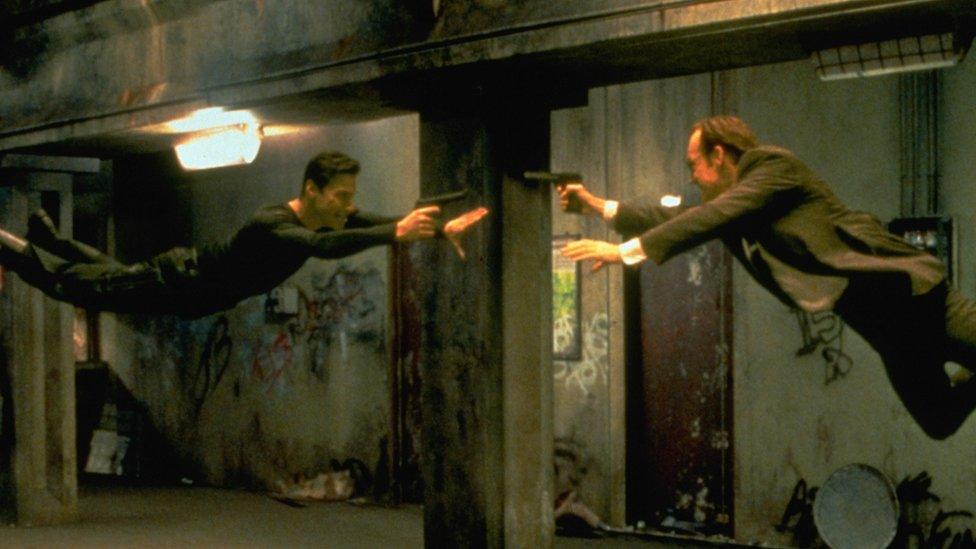
Hugo Weaving, who served the machines as Agent Smith (right) in the original trilogy, has spoken out against the hijacking of the film's message
The "free your mind" ethos exploited by red pill theory has also fed into politics - a byword for the modern age of far-right populism that positions itself as anti-establishment.
As a product of the alt-right, whose members are generally outspoken in their attacks on multiculturalism, globalisation and immigration, the red pill becomes "a verb", wrote broadcaster Danny Leigh., external
It opened "the eyes of new recruits to their hated oppressors - feminists, people of colour and progressives", he said. "Morpheus became the face of memes that asked: 'What If I Told You Hitler Was A Socialist?'."
Fuelled by a distrust of government, the media and the status quo, the alt-right was most evidently brought into mainstream Western politics by former US President Donald Trump and his supporters.
His own daughter, Ivanka, then a White House senior adviser, proudly quote-tweeted billionaire Elon Musk to say she had "taken" the red pill.
The tweet represented a complete reversal of Morpheus's red pill reality, says author James Ball. "In the film, taking the red pill is to accept an alien and horrifying truth rather than stay in a comfortable delusion," he said.
"And yet red-pilling, as beloved by far-right and niche online groups, is to accept vile but comfortable groupthink, to suit your own preconceptions, and see the world in a framing that suits yourself."
Lilly Wachowski responded curtly, with a blunt two-word condemnation. Actor Hugo Weaving, who played Agent Smith in the original Matrix trilogy, has also said he is "befuddled" by the hijacking of the film's message. "It just goes to show how people don't read below surfaces," he told The Daily Beast., external
3. Post-truth?

The fact it is now so easy to fortify yourself in an online media echo chamber - a space devoid of balanced opinion - has led to claims we are living in a "post-truth" era.
The term was even declared word of the year by Oxford Dictionaries after the Brexit and US presidential campaigns of 2016.
Messaging apps and social media have helped this climate flourish, with promotion of fake news and by using algorithms that build a version of reality tailored to our tastes - rewarding partisan news content.
This year's Reuters Institute Digital News Report, external found that while audiences increasingly value truth, only 44% believe the news they read.
Platforms like Instagram and TikTok have continued to attract more young people, but frequently offer personality and opinion-led content devoid of fact-checks, the study added.
Who starts viral misinformation... and who spreads it?
Together this can provide fertile ground for a spiral into a tailspin of misinformation and conspiracy theories. This means that the red/blue pill debate is blurring, and is today threatening to transform into a uniform purple pill of bias and distrust.
Ciaran O'Connor, of the Institute for Strategic Dialogue, says this is underpinned by confirmation bias, our tendency to prioritise or remember new information that supports our pre-existing opinions.
"Platforms such as Facebook are designed to profit from engagement and time spent on their platforms - and one way platforms engineer this is through algorithms. But we've seen how algorithms can inadvertently direct people to spaces where they are exposed and incentivised to engage in conspiracy content," he said.
He points to the evolution of the QAnon conspiracy as one of the best examples of this in action.
Its momentum eventually snowballed into January's US Capitol riots, fuelled in part by former President Trump's false claims of widespread election interference.
Despite intensified efforts to ban QAnon content on YouTube, Facebook and elsewhere, the once niche online conspiracy had already "gone global", says Mr O'Connor.
The irony is that although conspiracy theory followers believe they are emulating Neo by following the white rabbit and "unplugging" in search of truth, in fact the opposite is happening - they are being distracted within the very system they think they are exposing.
However, digital information sharing has not solely reinforced mistruth and protected the establishment. The original WikiLeaks data dump and Edward Snowden's mass surveillance revelations, while controversial in their practice, uncovered widespread government wrongdoing.
Social media has equally shown it can act as a liberating, uniting force, empowering democratic coups and social justice initiatives.
4. Living in the Matrix?
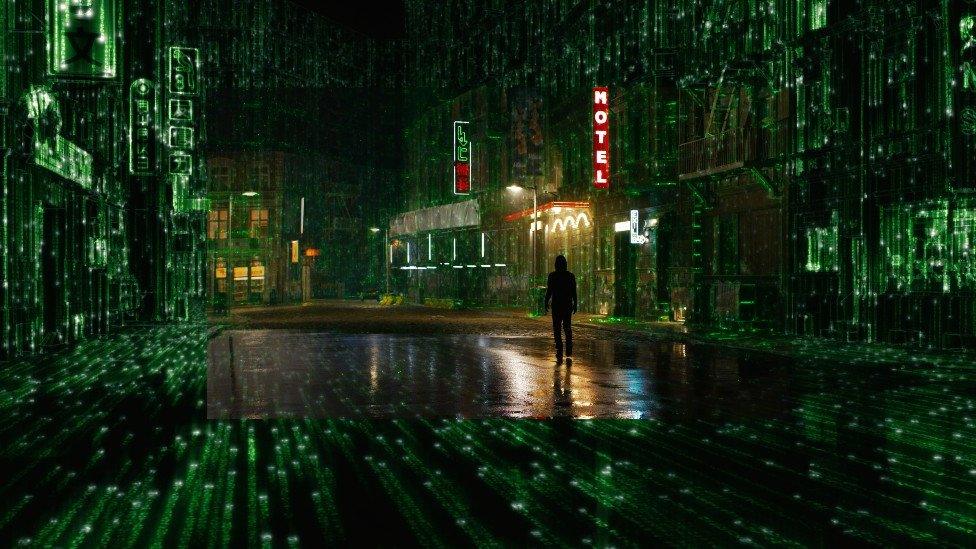
The matrix, although seemingly real to those unawakened within it, is actually built from computer code
Beyond shifting perceptions of truth, our increasingly interconnected online presence, known as a digital footprint, realises elements of the original Matrix film in ways that felt pure science fiction at the time of release.
Our willingness, tacitly or otherwise, to share personal information and agree to monitoring via technology, from mobile phones apps to machine learning tools like smart speakers, has allowed a very detailed picture of our personal lives and habits to be generated.
The Cambridge Analytica data scandal showed how this information can be used to target, influence, and potentially swing voters in political systems.
Elsewhere, the overlap between our digital and real life profiles has been increased by augmented reality and virtual reality, which mirror the way the rebels in the original film plug in and out of the simulation.
Facebook recently announced long-term plans to create a virtual metaverse - allowing more of life to be lived out immersively online.

Neo and Trinity find themselves back in the simulation in Matrix Resurrections
By the same token, the way Morpheus's freedom fighters hack the matrix system to install programmes, scenarios or different appearances reflects today's real-world rise of deepfake videos - a computer-generated copy that aims to impersonate someone.
Transhumanism, the belief that humans can improve beyond their physical and mental limitations and "upgrade" their bodies by incorporating technology, also matches the way characters in the film can download skillsets and learn to manipulate physics laws within the simulation.
Allow YouTube content?
This article contains content provided by Google YouTube. We ask for your permission before anything is loaded, as they may be using cookies and other technologies. You may want to read Google’s cookie policy, external and privacy policy, external before accepting. To view this content choose ‘accept and continue’.

The film's nod to identity and the body as malleable has been strengthened by Lilly Wachowski, who retrospectively described it as a trans allegory when speaking to Netflix last year.
"That was the original intention but the corporate world wasn't quite ready," said the filmmaker, who came out as trans along with her sister Lana after the original trilogy was released.
Allow X content?
This article contains content provided by X. We ask for your permission before anything is loaded, as they may be using cookies and other technologies. You may want to read X’s cookie policy, external and privacy policy, external before accepting. To view this content choose ‘accept and continue’.

So where does all this leave The Matrix as we look to the future?
Some believe full-circle. In 2016, a group of physicists suggested it is likely that our universe is not real and is instead a giant simulation run by a higher power. Technologists in Silicon Valley, including Tesla boss Elon Musk, have supported the idea., external
As implausible as it sounds, it fits the legacy of The Matrix. As Neo warned the machines in 1999: "I'm going to show them a world without you, a world without rules and controls, without borders and boundaries… a world where anything is possible".

Follow us on Facebook, external, or on Twitter @BBCNewsEnts, external. If you have a story suggestion email entertainment.news@bbc.co.uk, external.
- Published9 September 2021
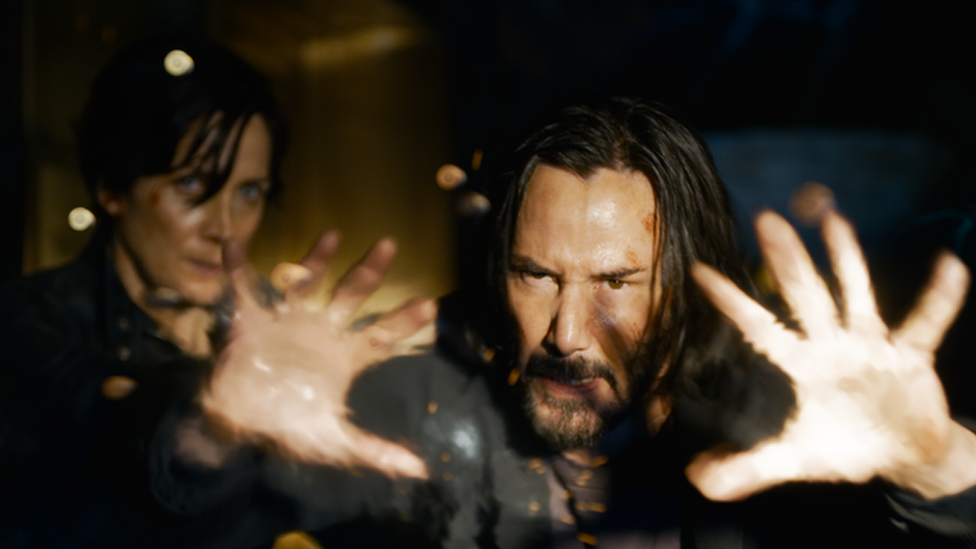
- Published21 August 2019
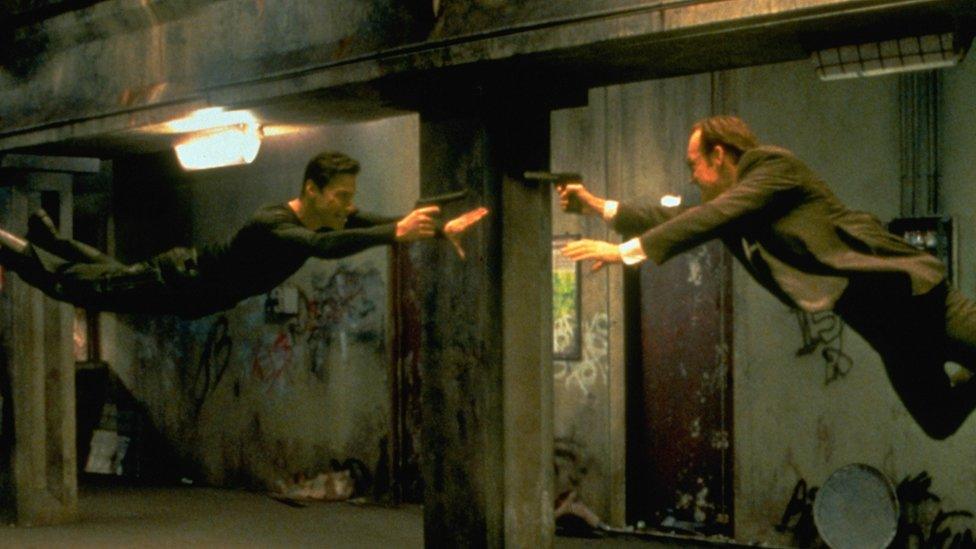
- Published21 August 2019
